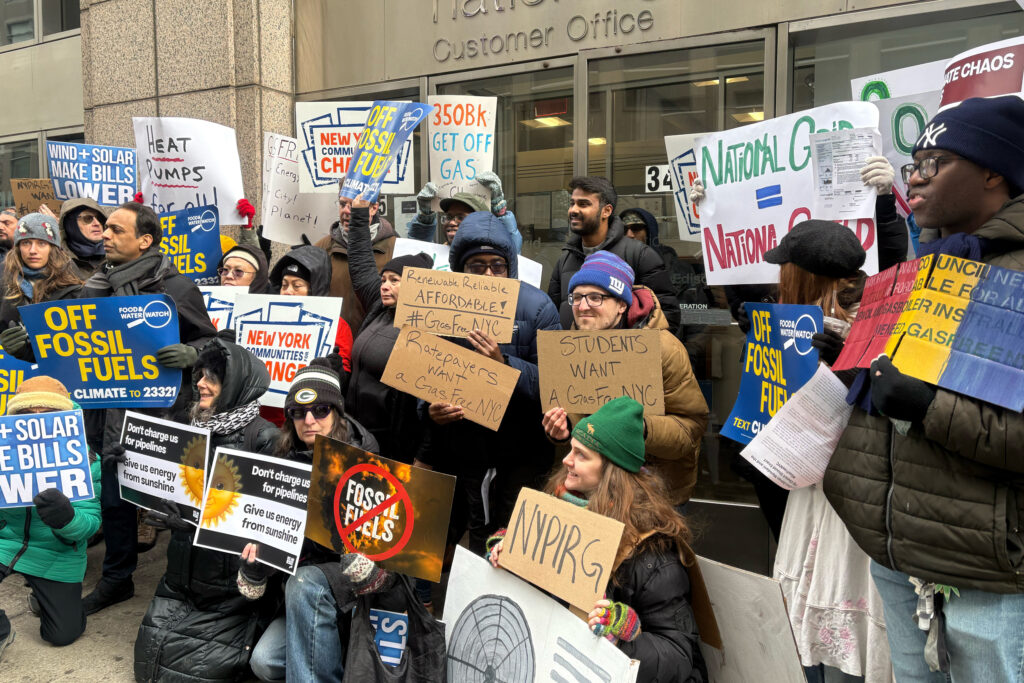When the South Philadelphia refinery was permanently shuttered by a catastrophic explosion in 2019 after some 160 years in operation, many residents and environmentalists welcomed it as the long-overdue end of the city’s biggest single source of air pollution.
Neighbors in so-called fenceline communities around the sprawling 1,300-acre site three miles south of City Hall said they would at last be free of the air emissions blamed for high rates of asthma and cancer, even if their groundwater remained polluted by petroleum-related substances from decades of leaks and spills.
But the refinery wasn’t the only source of area pollution. Among the sites still operating are a terminal where benzene has seeped into soil and groundwater. There’s also a proposed municipal natural gas storage plant, and another tank facility a fossil-fuel company plans to expand, which environmentalists say is vulnerable to flooding because of heavy rains and rising seas as the world overheats.
“There is still an incredibly large amount of polluting industrial facilities in South and Southwest Philly even though the refinery is closed,” said Russell Zerbo, an advocate for Clean Air Council, an environmental nonprofit in the city that presses for tighter regulation on the remaining fossil fuel complex.
Now, Zerbo and other activists worry about the future vehicular air pollution from the refinery site’s current repurposing by the developer HRP Group, formerly Hilco Redevelopment Partners, into a massive logistics center containing some 12 million square feet of warehouses, plus a life-sciences park.
“Once the Hilco construction is complete, the amount of vehicle traffic at the facility could equal the pollution from the former refinery,” Zerbo said.
HRP said it has removed millions of gallons of petroleum waste and thousands of miles of pipeline from the refinery site. Some contamination of soil and water can’t be effectively removed, the company said, and so is being capped and contained instead. HRP plans to promote the use of electric vehicles and build millions of square feet of space for solar panels on the new warehouses.
Pennsylvania’s Department of Environmental Protection has issued HRP five permits for that site under the National Pollution Discharge Elimination System, which allows operators to emit certain amounts of water pollutants. The permits were part of a new “fast-track” program under which the administration of Gov. Josh Shapiro, a Democrat, is trying to reduce regulatory delays.
In recent months, Clean Air Council has opposed plans by Philadelphia Gas Works (PGW), a city-owned utility, to build a storage plant for liquefied natural gas at a South Philadelphia site near a residential neighborhood where poor residents, many of them Black, have lived for years with dirty air.
“Clean Air Council has serious concerns about the air pollution emitted by this facility in a community that has long suffered from environmental injustices,” the group said in a note to supporters. “PGW’s Passyunk Plant is directly adjacent to a community of color endangered by the harmful air pollution from the former Philadelphia refinery as well as nearby highways.”
PGW declined to comment.
Environmentalists are also pressing regulators to require the cleanup of benzene, a carcinogen, from soil and water beneath the Belmont Terminal, a 12-acre parcel within the footprint of the former refinery. “More rain and bigger storms resulting from climate change will only result in an increase in contaminants transported to sewer systems beneath the site, the Schuylkill River and neighboring properties,” Clean Air Council wrote to supporters.
The terminal’s owner, Energy Transfer, said it recently installed a remediation system at the site that will remove contaminants from soil and groundwater more efficiently than an earlier system that had been operating since the late 1990s. The company submitted a cleanup plan to Pennsylvania regulators in June and expects to file another report in the first half of 2025, describing the installation and operation of the new system, said a spokesperson for the Texas-based energy transportation and storage company.
At an export terminal at Marcus Hook on the Delaware River, southwest of Philadelphia, Energy Transfer is also planning to cap and cover a three-acre pit containing acid sludge, a corrosive contaminant dumped by the former Sun Oil refinery in the early 20th century. If left in the ground, Clean Air Council said, the material could endanger public health with contaminants including benzene, arsenic and lead. The company did not respond to a request for comment on its Marcus Hook plan.
Meanwhile, PBF Logistics Products, an energy transportation and storage company, is planning to build a 90,000-gallon butane blending tank at its facility in a 100-year flood plain, which is increasingly threatened by flooding from a tidal section of the adjacent Schuylkill River in Southwest Philadelphia. PBF did not respond to a request for comment.
Air emissions are regulated by the city’s Air Monitoring Services agency, which said it issued no air violations for the PGW site, the Belmont Terminal or PBF’s tank farm since January 2022. But any violations would be for exceedances under permits, which allow certain levels of pollution such as nitrogen oxides and carbon monoxide. Those gases are subject to limits at the PGW plant, for example.
Mark Clincy, 66, a Black man who has lived in the West Passyunk neighborhood about three blocks from the refinery site for more than seven years, blamed refinery fumes for the deaths of five of his neighbors. Clincy sits on the board of Philly Thrive, a community group that called for the refinery’s shutdown, and is now pressing for a full cleanup of the site. He said HRP should remove all toxic material rather than capping it with concrete and asphalt, a remedy that he worries will force contaminants into groundwater, further endangering public health.
“The ground is so toxic they can’t grow anything, and it’s not been cleaned,” he said. “I’m talking about removing all the toxic waste, and shipping it out in a safe and humane manner. That’s at least a 10-year job.”
Other area plants are not a focus of Philly Thrive’s campaign for a more thorough cleanup of the refinery site, but they probably also hurt local air quality, Clincy said. “I wish we could find a way to shut them down, too,” he said.
About This Story
Perhaps you noticed: This story, like all the news we publish, is free to read. That’s because Inside Climate News is a 501c3 nonprofit organization. We do not charge a subscription fee, lock our news behind a paywall, or clutter our website with ads. We make our news on climate and the environment freely available to you and anyone who wants it.
That’s not all. We also share our news for free with scores of other media organizations around the country. Many of them can’t afford to do environmental journalism of their own. We’ve built bureaus from coast to coast to report local stories, collaborate with local newsrooms and co-publish articles so that this vital work is shared as widely as possible.
Two of us launched ICN in 2007. Six years later we earned a Pulitzer Prize for National Reporting, and now we run the oldest and largest dedicated climate newsroom in the nation. We tell the story in all its complexity. We hold polluters accountable. We expose environmental injustice. We debunk misinformation. We scrutinize solutions and inspire action.
Donations from readers like you fund every aspect of what we do. If you don’t already, will you support our ongoing work, our reporting on the biggest crisis facing our planet, and help us reach even more readers in more places?
Please take a moment to make a tax-deductible donation. Every one of them makes a difference.
Thank you,
















